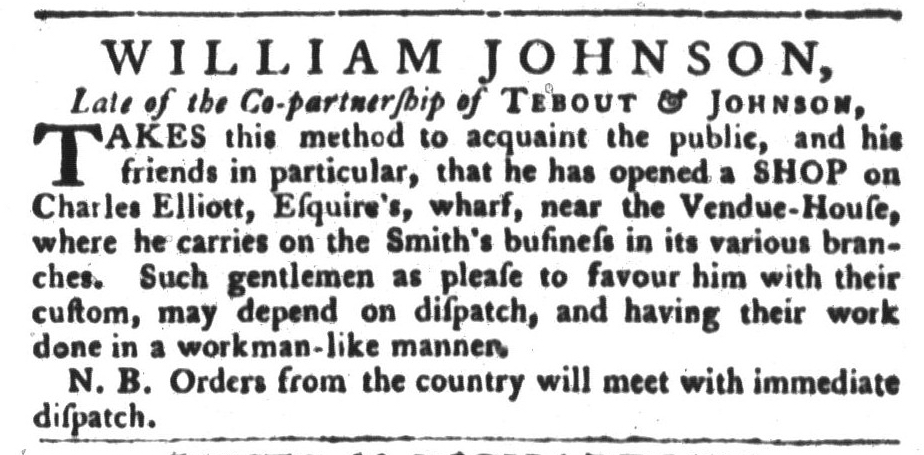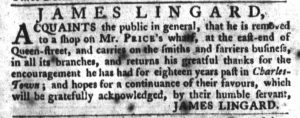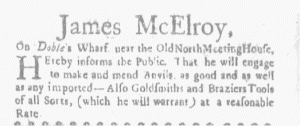What was advertised in a colonial American newspaper 250 years ago today?

“Atwell hath hired an English Workman, of exquisite Sill.”
In the fall of 1771, Amos Atwell took to the page of the Providence Gazette to let “the Town and Country” know that he “hath set up the CUTLERY BUSINESS, in all its Branches, at his Smith’s Shop.” Residents of Providence and nearby towns knew Atwell as a blacksmith, so the “CUTLERY BUSINESS” was a new endeavor for him. That being the case, he provided an overview of his goods and services to instill confidence that he was indeed prepared to expand his business. Atwell carried “Case Knives and Forks, Carving Knives and Forks, Pocket and Pen Knives of various Kinds, Razors, Surgeons Instruments, &c. &c.” Repeating “&c.” (the abbreviation for et cetera most commonly used in the eighteenth century) underscored the range of cutlery available at his shop. In addition, customers could have “all Kinds of Cutlery Ware cleaned, ground, and put in the best Order.”
The blacksmith did not undertake these tasks himself. Instead, this enterprise depended on acquiring qualified help, “for which Purpose said Atwell hath hired an English Workman.” Atwell proclaimed that he “carries on the Blacksmith’s Business as usual,” so his new employee attended to the “CUTLERY BUSINESS, in all its Branches.” Atwell declared that the cutler possessed “exquisite Skill” and promised that he “gives constant Attendance on the Business, and is always ready to receive and execute the Commands” of customers. New to the town, the unnamed cutler had not yet established his own reputation among prospective clients. That made his arrangement with Atwell mutually beneficial. The blacksmith aimed to attract more customers now that he offered more services at his shop, while the cutler received an endorsement from an artisan well known in the community. In their newspaper advertisements, blacksmiths and other artisans rarely mentioned the workers, free or enslaved, who labored in their shops. These circumstances, however, demanded that Atwell acknowledge that even though he “hath set up the CUTLERY BUSINESS” that another artisan actually oversaw those services at his shop.








